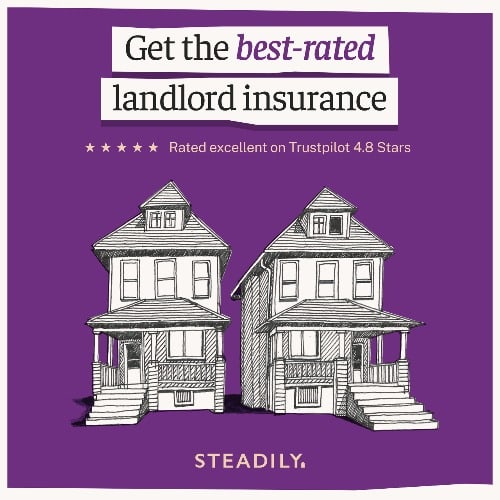A mortgage for real estate investors: the DSCR loan
DSCR loan requirements are as follows:
- Own or are buying a cash-flowing property (DSCR of 1.0+)
- No tax returns, pay stubs, or employment check
- 20% down
- 640+ FICO score
- Investment properties only
- SFR, 2-4 unit, condos
- Loan amounts $150k-$5 million+
- Prepayment penalty optional
- Close in your name or as an LLC/other entity
Overview: DSCR loan requirements vs traditional lending
Traditional mortgage lenders base eligibility for a new mortgage — and the maximum size of the mortgage loan — on your recent tax returns, W2s, 1099s, pay stubs, or bank deposits. If those recent earnings aren’t high enough to support your new mortgage along with your existing debts, you won’t get approved.
When you apply for a DSCR loan, underwriters base qualification on the property’s income, not yours.
A property that brings in $1,500 per month with a payment of $1,100 may qualify even if the buyer has hard-to-prove income or no job at all.
Check your DSCR eligibility now.This strategy can help would-be investors buy rental properties sooner by eliminating the need to file two years’ tax returns showing adequate income before financing a rental property. Rather than waiting until you have the debt-to-income ratio required to get a traditional mortgage approved by rules set by Fannie Mae or Freddie Mac, you can get financing now based on the rent you’ll earn from the new property.
DSCR loans can also help borrowers who have a hard time documenting their existing income because they’re self-employed or because they rely on investments for part of their income.
14 DSCR loan qualifications for 2023
DSCR stands for debt service conversion ratio. The amount of debt a lender will underwrite depends, in part, on how much your new property could earn from rent.
But there’s more to qualifying than simply finding a property for sale that has the potential to earn rental income. Here are some DSCR loan requirements to be aware of:
1. Debt service coverage ratio minimum
Most lenders look for a debt service coverage ratio of 1.0, meaning the property earns the same amount as its all-inclusive payment.
For instance, a property with $1,000 in monthly rental income could have a total payment including principal, interest, taxes, insurance, and HOA dues of $1,000.
Some lenders require a DSCR of 1.25 or higher depending on the borrower or property profile. The stronger your deal, the more likely you are to be approved.
2. DSCR loan-to-value ratio (LTV)
Many DSCR lenders will accept loan-to-value ratios as high as 80 percent. Others will finance up to 75 percent of the rental home’s value.
This means you’d need to provide the other 20 to 25 percent of the purchase price as a down payment.
3. DSCR loan credit score
For a DSCR loan, you’d need a FICO score of at least 640 with most lenders.
With some lenders, a higher LTV — think 75 to 80 percent — may require higher credit scores such as 660 or 720.
4. DSCR loan purpose
DSCR loans are designed for buying investment properties. Individuals and LLCs, along with businesses and commercial real estate developers, can use DSCR loans.
5. Property types allowed
You could use a DSCR loan to finance most type of rental properties, including vacation homes and properties that you’ll lease to residential tenants. These loans can finance single-family homes, duplexes, triplexes and four-plexes.
Unlike conventional lending, DSCR loans can also finance properties with more than four units.
6. Property use
Property bought with DSCR financing must be used to earn income from rent, whether it’s residential or commercial real estate.

- Top-rated landlord insurance
- Get a quote in minutes
- Protect your rentals
- Most competitive rates in the U.S.
- *We may be compensated if you purchase through this link

- Top-rated landlord insurance
- Get a quote in minutes
- Protect your rentals
- Most competitive rates in the U.S.
- *We may be compensated if you purchase through this link
7. Loan types
Lenders offer fixed-rate as well as adjustable-rate options for DSCR loans. Terms could stretch to 40 years, though most lenders offer up to 30-year DSCR loans. Some lenders offer interest-only payment structures.
8. Debt-to-income ratio, income, and employment
DSCR loan providers will not measure your personal income, check your W2s or 1099s from work, or measure your debt-to-income ratio. Instead, they’ll consider the potential earning power of your new rental property.
That’s why some lenders call these no-income verification investor loans.
9. Maximum loan amount
You could find DSCR loan amounts as high as $5 million. Most lenders cap loan amounts at $1 million or $2 million.
These kinds of maximums don’t mean you’ll automatically get a loan that large. Your maximum loan size will depend on your property’s debt service coverage ratio.
10. Maximum properties owned
Unlike government-insured home loans, DSCR loans won’t limit the number of properties you can finance at once. This is possible because lenders use the property you’re buying — more than your personal credentials — to underwrite the loan.
11. Prepayment penalties
Lenders can charge prepayment penalties on DSCR loans. These loans are not covered by federal laws that protect consumers from these penalties.
See if you can qualify for a DSCR loan.12. Recent credit events like bankruptcy and foreclosure
Eligibility for borrowers with negative credit events like bankruptcy and foreclosure will depend on the lender. But if you have a recent bankruptcy or foreclosure, you likely won’t meet the 640 minimum credit score requirement. If you have a high enough score, check with your lender on their specific recent credit event guidelines.
13. Closing in the name of an LLC
DSCR-financed rental properties can be closed in the name of your limited liability companies, or LLCs. Some lenders cap the number of LLC owners at two, and both owners must be on the loan and on title. Newly formed LLCs are usually okay.
14. Seller paid closing costs
Some lenders may cap seller concessions at 2-3 percent of the loan amount. If you plan to negotiate with the seller to pay some or all of the closing costs, check with your lender first.
How to qualify for a DSCR loan
To qualify for a DSCR loan, find an investment property that will cash flow once rented (or already cash flows when getting a DSCR refinance).
Calculate the full property payment including principal & interest based on current DSCR rates, taxes, insurance, and HOA dues and compare that to potential rental income. If rental income is at least as much as the full payment, you might qualify.
You’ll also need about 20% down and a credit score of at least 640. Lender prefer experience, but first-time investors can be approved with a strong deal.
Your personal income and employment status is not considered when applying. The lender will not ask for tax returns.
How to get a DSCR loan
To get a DSCR loan, start by applying with a DSCR lender. Come prepared with:
- The property address
- Purchase price
- Current leases or documentation about market rent
- Amount of taxes, insurance, and HOA dues
- Information on your experience as an investor
- How you will be buying the property (LLC, personal, etc.)
When you have the necessary information, call the DSCR lender or apply online. A DSCR loan officer will review your scenario. If it seems doable, the lender will review the loan and potentially issue an approval. Once approved, you can complete the property purchase.
FAQs about DSCR loans
Along with making a down payment of 20 to 25 percent and having a credit score of 640 or higher, you’ll need to meet your lender’s DSCR requirement. Some lenders may require your property to earn 100%-120% of the home’s monthly mortgage payment. That would be a DSCR of 1.0-1.2.
DSCR requirements vary by lender and borrower. A loan whose payment matches the rent payment on the home would have a debt service conversion ratio of 1.0. Lenders usually require a ratio between 1.0 and 1.5.
No, a DSCR loan can offer long-term financing, just like a conventional mortgage loan.
No, DSCR underwriting relies mostly on income generated by the rental property you’re financing. Your personal finances will face less scrutiny than they would for a traditional home loan.
No. Many lenders allow you to use a DSCR loan on your first investment property.
For a purchase with no rental history, the appraiser will complete a rental comparison analysis, called a 1007. The lender will use this. For existing rentals, the lender may accept three months of lease payments as proof of market rent.
DSCR loans can close within 20-25 days. This is faster than a conventional loan because federally-mandated waiting periods that apply to standard mortgages do not have to be followed.
No. Funds must be your own. If you are receiving a gift, place the money in a bank account for 60 days. At that point, the funds are considered “seasoned,” meaning the lender considers them your funds at that point.
Yes, as long as the appraiser does not list the property as vacant. Make sure the lender and appraiser know that it is a short term rental. Ask the lender how it calculates property income on an STR. A long-term rental estimate may need to be used.
There is no limit. In fact, you can refinance and take cash out of 3, 5 or even 10 homes at a time to invest in more homes. This is often easier than refinancing one property at a time.
Many lenders require a loan amount of $75,000 to $100,000. That translates to a property price or value of around $95,000 to $125,000.
DSCR loan interest rates are higher than for conventional loans, but only by about 1-2%.
DSCR loan: a solution for the beginning or seasoned real estate investor
You don’t have to be a millionaire or an established real estate developer to buy a rental property with a DSCR loan.
Rather than leveraging your personal finances to get the loan, you’ll be leveraging the earning potential of the home you’re buying.
This kind of loan may be just what you need to launch, or grow, your very own real estate portfolio.
Submit your DSCR loan scenario.
- Top-rated landlord insurance
- Get a quote in minutes
- Protect your rentals
- Most competitive rates in the U.S.
- *We may be compensated if you purchase through this link

- Top-rated landlord insurance
- Get a quote in minutes
- Protect your rentals
- Most competitive rates in the U.S.
- *We may be compensated if you purchase through this link
Our advise is based on experience in the mortgage industry and we are dedicated to helping you achieve your goal of owning a home. We may receive compensation from partner banks when you view mortgage rates listed on our website.





